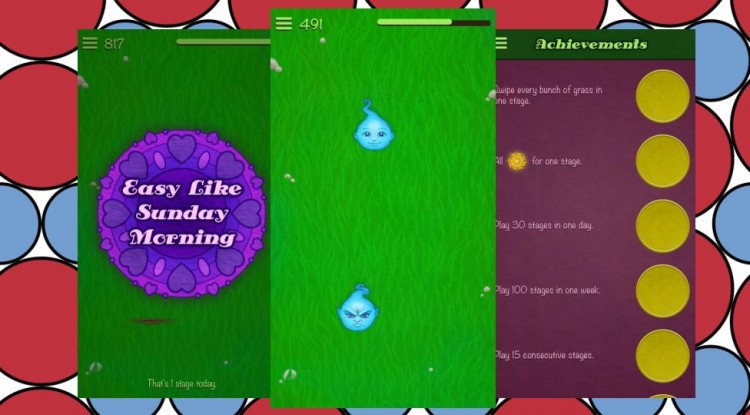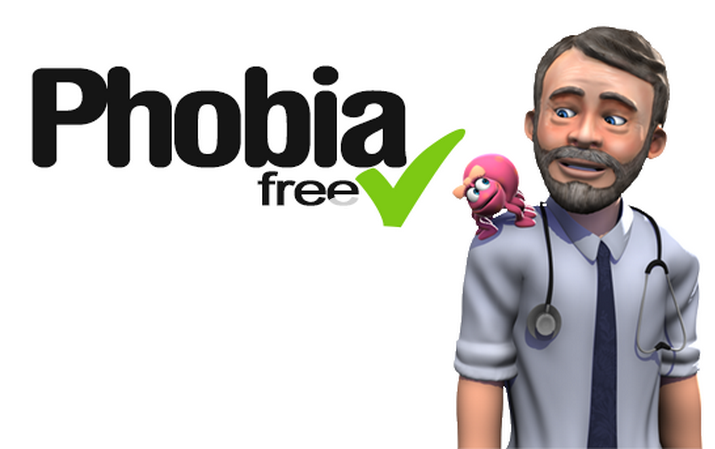Best Apps for Reducing Anxiety
It’s the time of year when college students (myself included) face the seemingly insurmountable obstacles that are final exams. Students can be seen running around in a state of panic, using open textbooks as pillows, and rocking back and forth with glazed eyes mumbling incoherent nonsense about “kingdoms of ends,” “aggregate demand curves” and “hierarchies of needs.” For people like us, spring is the least wonderful time of the year, filled with near-overwhelming stress, barely suppressed panic, and fits of depression when you realize you’ve bombed the most important test of the semester.
Even people no longer in college have to contend with fun things like tax returns and allergies, so the season of new life leaves most people feeling like they’re on death’s door. Luckily, there’s an app for that. Several, actually. Forget stress-relief balls; stress-relief apps are now all the rage, and according to BBC News, they are seeing results even in people who deal with severe phobias and anxiety disorders.
Flowy
Flowy is an anti-anxiety app that was designed by Simon Fox, a computer programmer who used to suffer from severe panic attacks. The app teaches users breathing exercises using games and puzzles, and may be useful in preventing hyperventilation. Deep breathing is a well-known way to combat panic attacks, and the app provides a way to both regulate your breaths and distract you from your anxiety with games. Users’ results are recorded and evaluated so they can see how they did or share the information with a health care professional. While it hasn’t yet undergone clinical evaluation, the creators seem pretty confident that it’s going to be an effective method of helping people with anxiety disorders cope.
Anxiety Release with Bilateral Stimulation
Catchy name, I know. This app claims to deal directly with the parts of the brain that produce anxiety, and I don’t know whether to be intrigued, scared, or both. According to an article from the Sydney Morning Herald, the app uses “auditory and visual bilateral stimulation of the brain” to treat anxiety, which as I understand it means that the app shows fast moving objects or plays strange sounds to trigger an automatic response that takes people’s attention away from obsessing over their problems. So instead of worrying about things like a presentation, the app taps into the brain’s built in hard-wiring and awakens the more primal fears such as being eaten alive by a saber-toothed tiger. Fear of imminent demise doesn’t sound preferable to fear of messing up a speech to me, but according to the app’s creator, the brain will realize that there is no threat, allowing you to relax while still focusing on the stimuli.
Personal Zen

Personal Zen is a new app that was developed by a psychologist named Dr. Tracy Dennis to treat anxiety using ABTM. Attention bias modification theory, a shiny new treatment for anxiety disorders, uses cognitive training to teach stressed people to avoid their problems and focus only on bright, sunshiny happy things. While I’m not convinced that sticking your head in the sand is the best approach to life, it does apparently help distract people from their fears. Studies have shown the app to significantly reduce anxiety, even after a relatively short amount of time. But always remember: just because you can’t see the thing doesn’t mean that it can’t see you.
Phobia Free
This app is perfect for people with an intense, irrational fear of spiders. It implements systematic desensitization, a treatment method where people are gradually exposed to higher and higher doses of whatever they are afraid of, in this case creepy crawly arachnids. The users play games that feature adorable, cutesy cartoon spiders (apparently there is such a thing) to help show that spiders are harmless (you know, except for the ones that can kill or maim you). You’ll move on to more realistic spiders in everyday settings like living rooms or bathroom sinks, until you eventually get to the stage in which you take a picture of your immediate surroundings and the app superimposes a giant tarantula on it.
I’m not sure how the treatment holds up in real life arachnid encounters, like when tarantulas dropped from thatched roofs onto unsuspecting tourists during my trip to the Amazon rainforest, but it has been shown to reduce fear. The creator of the app, a psychiatrist named Russell Green who once suffered from the phobia himself, is also working on developing an app to help people with agoraphobia.
The Ones That Sent Conan Into a Homicidal Rage
While there are dozens of stress-relieving apps out there, there are only a few that have actually been developed by psychologists and properly tested. The others can be hit and miss, and not everyone finds the amateur relaxation apps all that relaxing, as this video of Conan proves.
[youtube https://www.youtube.com/watch?v=ETXmA8egMeE&w=640&h=360]



